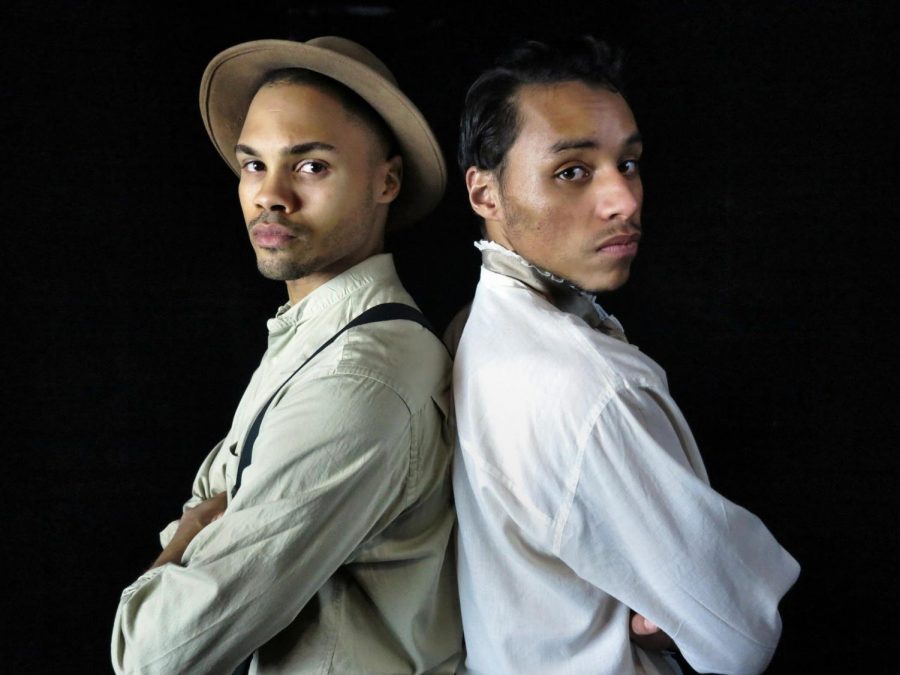‘One Drop’ and the Politics of Passing
Justin Foster as Charley Cade (right), and Brian Christopher Scott (left) as his father in One Drop.
February 6, 2018
A period drama set in post-Civil War Louisiana, the Theater For The New City’s production of “One Drop” works to understand ancestry, family and the politics that surround them.
Written by Andrea J. Fulton, the story follows protagonist Charley Cade (Justin Foster), a man born out of wedlock to a white woman and a black man. It examines the politics of “passing,” the ability of a person to be regarded as a member of a racial group different than their own, to gain stature in a white-dominated society.
Cade’s journey to understand his own origins is based on the playwright’s very own family history. As a result, “One Drop” succeeds by weaving Fulton’s dynamic interpretation of family culture with fast-paced dialogue and lively jazz that elevates what cliches or lack of complexity the play suffers from.
Raised by his adoptive mother, Tessa (Alicia Foxworth), after expulsion from his birth mother’s home, Cade spends a large part of his story attempting to consolidate these two spheres of his racial identity while struggling to fit into the larger community.
Cade’s found family is the highlight of “One Drop” and ties the production together. As Cade struggles to find his place in the black community, Tessa and a small collection of her friends become Cade’s safety net. The intricacies of family life are captured through these windows into Cade’s everyday life and conversations.
This is where the jazz takes over. Illona Dixon’s musical direction highlights the loyalty and warmth that comes with Cade’s newfound support system by underscoring every scene with assuring sound and joyous choreography from Leslie Dockery.
While “One Drop” succeeds in creating a wholesome family for Cade to fall back on, it neglected to fully explore Cade’s inner turmoil over passing. His journey and destination feel trite, resulting in an ending that feels unearned.
Mixed race politics is a nuanced and complex issue that bears a huge importance on society today. The potential for “One Drop” to continue the conversation surrounding race did not feel completely fulfilled within the play’s two-hour running time.
“One Drop” thrives in cultivating the likeability of the characters and the actors who exhume them. Family is full of traditions, lively arguments and raucous living room banter, and Fulton succeeds in capturing such traits through the love she pours into the semi-autobiographical play. As far as the conversation on racial identity politics, there is more work to be done.
“One Drop” is currently running at the Theater for the New City, 155 First Ave, through Feb. 18.
For tickets, call (212) 254-1109 or visit www.theaterforthenewcity.net.
Email Jessica Xing at [email protected].












































































































































